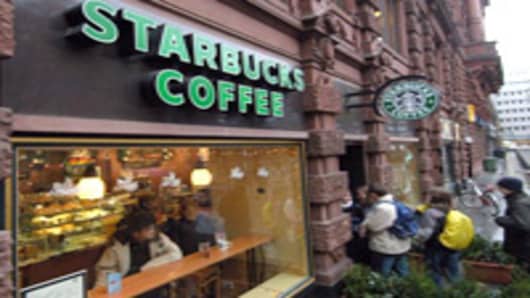Dan Gross, senior editor and columnist at Newsweek, has identified a new economic indicator: that a country’s number of Starbucks stores inversely correlates with its economic health—the more Starbucks stores, the greater the financial crisis.
“Starbucks has always been a symbol of caffeinated, American style capitalism,” said Gross.
“[Starbucks stores] are usually located around financial centers [in the U.S.], and in financial centers around the world," he said. "When you look at the cities where the banking systems have been held or had to be nationalized—like London, Madrid or Paris, South Korea—very high concentrations of Starbucks.”
“[However,] the places where the financial system isn’t connected to the U.S. at all—like the entire continent of Africa—where their banks are holding up OK, there are only three in that entire continent,” noted Gross. “Italy’s banks are doing OK—Italy has no Starbucks whatsoever.”
Interestingly, Gross also discovered that similar to the housing market, Starbucks peaked in the spring of 2006.
(Watch the accompanying video for the full interview with Gross.)
Although there may appear to be correlations, Gross said the Starbucks theory is not necessarily scientific.
____________________________
More from CNBC.com:
- Wal-Mart CEO Sees Gas Price Boost
____________________________
Disclosures:
No immediate information was available for Dan Gross or his firm.



